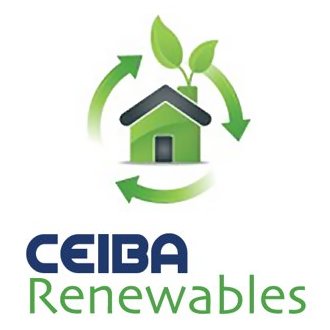A well-functioning and effective solar photovoltaic (PV) system is a result of diligent planning, professional installation, and ongoing maintenance. As an investment in both your property’s value and our planet’s sustainability, it is crucial to ensure that your solar PV system operates optimally throughout its lifespan. By focusing on long-term performance, you can maximise both the financial and environmental benefits that solar energy has to offer.
In this article, Ceiba Renewables provides valuable insights and practical advice on maintaining the performance and longevity of your solar PV system. We will discuss the factors that influence solar panel lifespan, as well as preventative measures and best practices for preserving the efficiency of your system over time. Our goal is to empower you with the knowledge and guidance needed to enhance your solar PV system’s durability, maximising its potential to deliver clean, renewable energy for years to come.
1. Factors Influencing the Lifespan and Performance of Solar PV Systems
A solar PV system’s long-term performance is influenced by various interrelated factors. By understanding these factors, you can make informed decisions to ensure the vitality and efficiency of your solar PV system:
a. Quality of Components: Investing in high-quality solar panels, inverters, and mounting systems is instrumental in extending the lifespan and maintaining the performance of your solar PV system. Superior components often come with more extended warranties and higher efficiency rates, ensuring a reliable and robust solar system.
b. Installation Practices: A professional and meticulous installation process is vital for optimising your solar PV system’s performance. Proper mounting, angling, and wiring, all contribute to the efficiency and durability of your solar power system. A well-installed solar system minimises the risk of component failures, system degradation, and premature ageing.
c. Environmental Conditions: Weather conditions, such as temperature fluctuations, snowfall, and natural disasters, can impact the performance and lifespan of a solar PV system. To mitigate these risks, it is crucial to account for local environmental conditions when designing and installing a solar PV system.
2. Preventative Maintenance and Periodic Inspections
Proactive maintenance and regular inspections play a vital role in preserving the long-term performance of your solar PV system:
a. Cleaning Solar Panels: Regular solar panel cleaning is essential to maintain their efficiency. Panels should be cleaned at least once a year, as dirt, dust, and debris can prevent sunlight from reaching the solar cells, reducing energy output.
b. Inspecting Mounting Structures: Periodic inspection and maintenance of mounting structures are critical for ensuring the stability and integrity of your solar panels. Loose components, corrosion, or wear and tear should be detected and addressed promptly to avoid potential damage to the system.
c. Inverter and Wiring Maintenance: Regularly inspecting and maintaining the inverter and wiring will help you avoid component failures and detect issues early on. Regular component checks will ensure optimal performance of your solar PV system.
3. Monitoring System Performance
Continuous monitoring of your solar PV system’s performance will help you detect and address inefficiencies, preserving the system’s long-term functionality:
a. Monitoring Equipment: Installing monitoring equipment, such as performance trackers and data loggers, will provide you with insights into your solar PV system’s operation. These tools allow you to track energy output, identify underperforming components, and detect potential issues before they escalate.
b. Benchmarking Energy Output: Regularly benchmarking your solar PV system’s energy output against its expected performance can help you identify efficiency losses and address them in a timely manner, ensuring optimal performance throughout your system’s lifespan.
4. Upgrading and Optimising Your Solar PV System
Strategically upgrading components and optimising configurations can contribute to extending the lifespan and maintaining the long-term performance of your solar PV system:
a. Replacing Outdated Components: Over time, some components in your solar PV system may become obsolete or less efficient. Replacing outdated components with newer, more advanced alternatives can improve system performance and maintain efficiency.
b. Optimising Configurations: As your energy consumption patterns change, adjusting your solar PV system’s configuration may be required to maximise efficiency and cater to your evolving energy needs. Configuring your system based on your current energy usage will help you capitalise on the system’s full potential.
Conclusion
Extending the lifespan and maintaining the long-term performance of your solar PV system is an essential aspect of maximising the financial and environmental benefits of renewable energy. By understanding the factors that influence system performance, establishing proactive maintenance practices, and continuously monitoring efficiency, you can ensure that your solar PV system delivers clean, reliable energy for years to come.
Ceiba Renewables is committed to providing expert guidance, design, consultancy, project management, and installation services to help you make the most of your solar PV system. Partner with Ceiba Renewables, solar energy specialists, and unlock the enduring potential of solar PV, ensuring your renewable energy investment remains a powerful force for change in the UK’s energy landscape.

